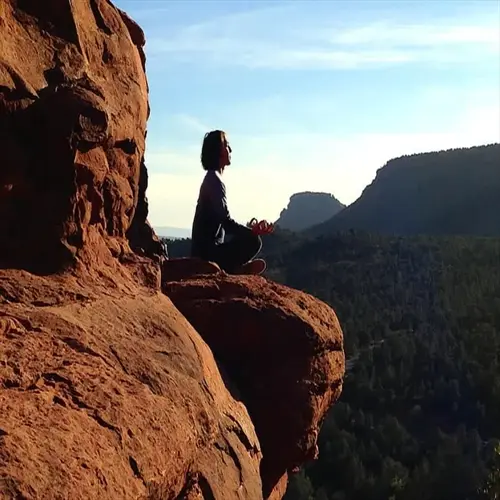How do I handle distractions during meditation?

Written by
Chen Jialiang
Reviewed by
Prof. William Dalton, Ph.D.Managing distractions starts with accepting thoughts that wander. Note the distractions, "planning," "worrying, etc," but do so without judgment. Each time, return to the breath anchor gently, and you will be developing habits that are resilient to attention interrupters. Personally, I practice this every day, and it is incredible how we can convert interruptions into focus training.
Thought Labeling
- Identify distraction categories like 'memory' or 'fantasy'
- Mentally whisper labels without emotional engagement
- Creates psychological distance from thought content
- Reduces distraction power through detached observation
Anchor Switching
- Shift focus to physical sensations when breath loses effectiveness
- Notice points of contact like hands on knees or feet on floor
- Provides alternative concentration points during overwhelm
- Resets attention without frustration or self-criticism
Sensation Grounding
- Engage senses with environmental sounds or textures
- Notice ambient noises without labeling them good/bad
- Returns awareness to present-moment reality
- Counters mental drifting during extended sessions
Develop non-judgmental awareness towards distractions. Don't judge the moments when you lose focus. Each time you return to the task you are engaged in, you are reinforcing that neural network. I remind students that progress in this situation means noticing more quickly. Perfection is not the goal. Consistent and gentle returns to your focus are what really build mental discipline.
Utilize technique flexibility and switch anchors frequently when stress is high. Instead of continuing longer sessions and forcing your attention, try shortening the meditation time. I make these adaptations when working under a deadline. Small modifications will prevent meditation from being an added stressor.
Track distraction patterns through brief journaling. Note frequent thought categories weekly. Observe reduced reaction time to interruptions. I measure success by the calmer responses I have to real-life distractions outside of practice.
Read the full article: 10 Essential Meditation Tips for Beginners

